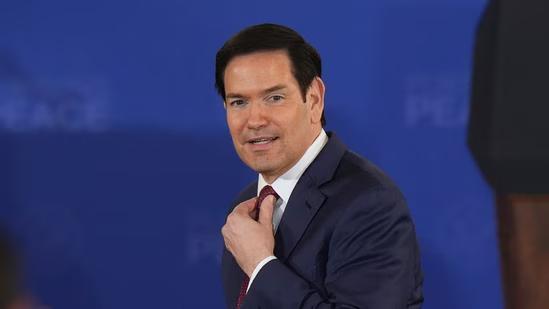
Here is the blog post:
We Keep an Eye on India & Pak Situation Every Single Day: US
The ongoing tensions between India and Pakistan have been a cause of concern for the international community, and the United States is no exception. Recently, US Secretary of State Marco Rubio made some significant remarks regarding the situation, stating that the US “keeps an eye” on the situation between India and Pakistan “every single day.” These comments have sparked a lot of interest and debate, with many wondering what exactly the US is doing to bring about a resolution to the crisis.
Rubio’s statement was made in the context of the ongoing conflict between Russia and Ukraine. While discussing the situation, he emphasized that ceasefires can easily fall apart, and that the US is not aiming for a permanent ceasefire, but rather a peace deal. This statement has raised several questions about the US’s role in mediating the conflict between India and Pakistan, and whether they are indeed keeping a close eye on the situation.
For those who may not be familiar, the tensions between India and Pakistan are rooted in a long history of conflict and animosity. The two countries have fought several wars, and the situation remains volatile to this day. The latest flashpoint was the Pulwama attack, which was carried out by a Pakistan-based terrorist group and resulted in the deaths of dozens of Indian security personnel. In response, India launched airstrikes on a terrorist camp in Pakistan, which led to a significant escalation of tensions between the two countries.
In the aftermath of the Pulwama attack and subsequent airstrikes, the international community has been working to de-escalate the situation. The US, in particular, has been playing a key role in mediating the conflict, with Secretary of State Marco Rubio’s recent statement being the latest development in this regard.
So, what exactly does Rubio’s statement mean? In essence, it suggests that the US is closely monitoring the situation between India and Pakistan, and is working to bring about a peaceful resolution to the conflict. The statement also emphasizes that ceasefires can easily fall apart, and that the US is not aiming for a permanent ceasefire, but rather a peace deal that addresses the root causes of the conflict.
But what exactly does this mean in practice? For one, it suggests that the US is taking the situation very seriously, and is willing to work closely with both India and Pakistan to bring about a resolution. It also suggests that the US is aware of the complex history and dynamics between the two countries, and is working to address these issues in a meaningful way.
Another significant aspect of Rubio’s statement is the emphasis on the need for a peace deal. This is a significant departure from the US’s previous approach to the conflict, which has often focused on promoting ceasefire agreements. By emphasizing the need for a peace deal, Rubio is acknowledging that a ceasefire is not enough, and that the US needs to work towards a more comprehensive resolution to the conflict.
So, what can we expect from the US in terms of its role in mediating the conflict between India and Pakistan? In the short term, we can expect the US to continue to play a key role in de-escalating the situation and promoting a peaceful resolution. This may involve working closely with both India and Pakistan to address their concerns and needs, and to promote dialogue and cooperation.
In the long term, we can expect the US to work towards a more comprehensive resolution to the conflict, one that addresses the root causes of the tensions between India and Pakistan. This may involve promoting economic cooperation and trade, as well as addressing issues such as terrorism and border disputes.
In conclusion, Marco Rubio’s statement that the US “keeps an eye” on the situation between India and Pakistan “every single day” is a significant development in the ongoing conflict between the two countries. It suggests that the US is taking the situation very seriously, and is willing to work closely with both India and Pakistan to bring about a peaceful resolution. By emphasizing the need for a peace deal, Rubio is acknowledging that a ceasefire is not enough, and that the US needs to work towards a more comprehensive resolution to the conflict. Only time will tell what the future holds for the US’s role in mediating the conflict between India and Pakistan, but one thing is clear: the situation is being closely watched by the international community.



